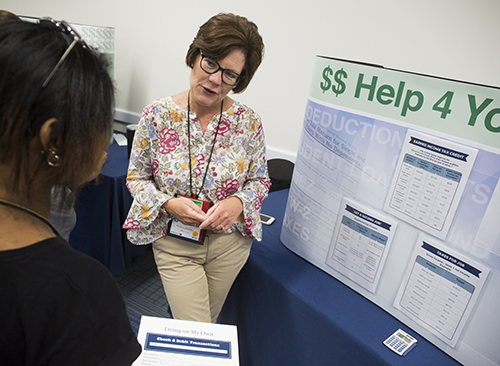
Money Matters
Money is a complex business.
From building credit and buying a home to investing and retiring, there is an abundance of topics you should become familiar with when working toward fiscal well-being.
UF/IFAS offers articles, videos and other resources to help you take control of your personal finances. Discover how to budget, plan your estate, navigate taxes and more!

Money Management and Budgeting
- Building a Spending Plan Series
- Coping with a Money Crunch Series
- Free Financial Counseling
Goal Setting and Saving
Credit
Investing
Retirement
Home Ownership
Taxes
Consumer Protection and Identity Theft
Videos
FAMILY RESOURCES
- Disaster Prep and Recovery
- Disease Prevention and Management
- Families & Consumers
- Family Time
- Health and Nutrition
- Health and Nutrition for Children
- Health Care
- Pest Control
RESOURCES
UF/IFAS Sites
- Department of Family, Youth and Community Sciences
- Expanded Food & Nutrition Education Program (EFNEP)
- Family Nutrition Program (FNP)
- Food Science and Human Nutrition Department
- Health in a Heartbeat
UF/IFAS Publications
- Aging and Caregiving
- Children, Elders and Family
- Community Development
- Eating Well
- Food Safety in the Home
- Health and Nutrition
- Housing and Home Environment
- Money Matters
- Parenting
- Relationships
State & Federal Agencies





.jpg)

.jpg)